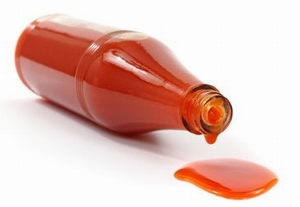 University of Nevada Las Vegas may give spicy food-lovers pause. Researchers at UNLV reported this week they have found concerning levels of lead in several types of imported hot sauces that were tested.
University of Nevada Las Vegas may give spicy food-lovers pause. Researchers at UNLV reported this week they have found concerning levels of lead in several types of imported hot sauces that were tested.The study, by Shawn Gerstenberger and Jennifer Berger Ritchie, and published in the Journal of Environmental Science and Health, is the first known investigation into lead levels in hot sauces, according to the university.
The U.S. Food and Drug Administration does not have a safe standard for lead in hot sauce, but it did set one for candy after evidence showed lead was an issue in certain imported products. The agency has set that limit at 0.1 parts per million (ppm).
Taking 25 bottles of imported hot sauces from Mexico and South America, the researches tested each for lead concentrations and pH levels; they also tested the packaging for lead, which can leach into food.
About 16 percent of the products tested exceeded the 0.1 ppm standard for unsafe levels of lead in candy. All four products that tested above that limit were imported from Mexico.
“Although hot sauce would not intuitively be counted amongst food products highly consumed by children, the study suggests that ethnic and cultural practices must be considered,” according to a release by UNLV. “If hot sauce is a regular part of a child’s diet, it could contribute to unsafe levels of lead exposure, especially when combined with exposure to lead in the soil, cookware, and candies, or paint manufactured before 1978.”
Gerstenberger, one of the study’s authors, said the results show the need for “more rigorous screening protocols” for hot sauce and other food products imported in Mexico.
“Without enforceable standards for hot sauces and condiments, manufacturers will not be encouraged to improve quality control measures designed to reduce the amounts of lead and other toxic elements before exporting,” he said.





